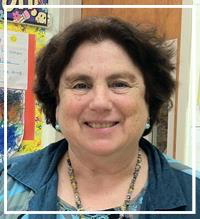Commentary on Parshat Ha’Azinu (Deuteronomy 32:1 – 32:52)
We stand in a week of transition, transformation in process: between Rosh Hashanah and Yom Kippur, preparing to read Parshat Haazinu, Moses’ final charge to the Israelite people. The Unetaneh Tokef prayer of Rosh Hashanah Musaf still echoes in our ears, as we prepare to recite it one more time Yom Kippur morning.
Unetaneh Tokef reminds us that life is full of transience and uncertainty: fire, drought, plague. The question is not “who will live and who will die?” because we are all mortal creatures: “our origin is dust and dust is our end.” Rather, in this specific year ahead, what kinds of transience will we experience, and how will we weather it?
Sign up to receive Torah from T’ruah in your inbox each week!
Seen in that light, the prayer’s exhortation to teshuvah (repentance), tefillah (prayer), and tzedakah (restorative giving) become not so much ways of “averting the evil of the decree” but tools for transforming ourselves, for imbuing the inevitable change with meaning. When we find ourselves wandering and lost, teshuvah — turning and returning — has the power to reorient us toward integrity so we may find the right path. When earthquake throws us off balance, tefillah helps us — by expressing gratitude and connecting to the source of all life — to regain the footing of our intentions to be good and to do good. When our hands curl inward to protect ourselves from harmful blows, tzedakah — restorative giving — forces us to open our hands and contribute our material and spiritual selves to others, to pursue justice for them as well as for ourselves. These disruptions are not merely distractions, bumps in the road; they are opportunities to remake the road itself.
Which brings us to Ha’Azinu and the Israelites assembled to hear Moses’ final exhortations. They have been walking a road for 40 long years. God tells Moses to ascend Mount Nebo to see the Promised Land and reminds him that he will not be able to enter it. Moses, like many of us, does not get to enjoy the fruits of his labors. He dies on the precipice of his accomplishments. It is the journey that has determined his greatness and from which he must reap his rewards. The plagues, the burning fires, the sword, the thirst — all have been opportunities for transforming the people from slaves into the free people who can enter the promised land after Moses’ death. Some opportunities the have seized with relish; others they have passed by; some they tried to work with and failed. So it goes.
 Any effort to change the world is also a journey of uncertainty and transience: Some goals are achieved, some are not, and some are but not in our lifetimes. Each of us struggles in our own way to accomplish our goals for tikkun, but few of us ever gets to fully achieve them.
Any effort to change the world is also a journey of uncertainty and transience: Some goals are achieved, some are not, and some are but not in our lifetimes. Each of us struggles in our own way to accomplish our goals for tikkun, but few of us ever gets to fully achieve them.
As we stand at the foot of Mount Nebo watching Moses ascend, we bear witness to the journey of our people from slavery to freedom. We understand from Unetaneh Tokef that that freedom is fraught with uncertainty: the fire, drought, and sword are not going away. And so we accept our obligation to transform that uncertainty into resoluteness to nevertheless make what impact we can on the world.
Rabbi Cheryl Weiner, PhD, BCC, has been a social justice advocate throughout her life. Ordained by the Academy for Jewish Religion, CA in 2007, she is currently a Staff Chaplain and Community Rabbi for the Greater Miami Jewish Federation and is a Board Certified Chaplain for Seasons Hospice, Broward. She also serves on the Board of the Jewish Publication Society and is a former board member of Neshama, the Association of Jewish Chaplains and the Rabbinical Association of Greater Miami.

